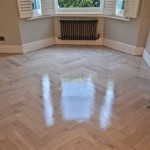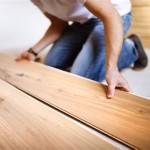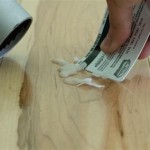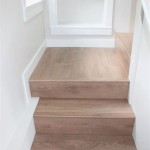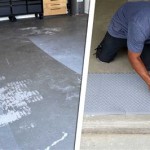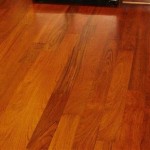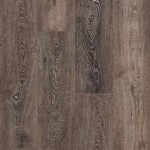How to Lime Wash Wood Floors
Limewashing wood floors is a popular technique for achieving a rustic, farmhouse, or shabby chic aesthetic. It offers a unique, matte finish that can transform the look of your space, creating a softer, more inviting feel. Limewash is essentially a diluted mixture of hydrated lime and water, sometimes with pigments added for color. It's a natural, eco-friendly choice that provides a breathable, long-lasting finish. This article will guide you through the process of lime washing wood floors, from preparation to application, ensuring you achieve the desired result.
Prepare the Wood Floor
Before applying limewash, it's crucial to prepare the wood floor thoroughly. This ensures proper adhesion and a smooth, even finish. Begin by removing any existing finishes, such as paint, varnish, or sealant, using a paint stripper or sanding. A thorough cleaning is essential, so sweep, mop, and vacuum the floor to remove dust, dirt, and debris. For best results, it's recommended to lightly sand the floor to create a slightly rough surface for the limewash to adhere to. This step is particularly significant for smooth, finished floors. Remember to wear a dust mask and eye protection during sanding.
Mix the Limewash Solution
The next step involves preparing the limewash mixture. You can purchase pre-mixed limewash solutions or create your own. To make your own, combine hydrated lime with water. The ratio depends on the desired opacity, but a general rule of thumb is to use one part hydrated lime to five parts water. You can also add pigments to achieve different colors. If you want a pure white look, simply use hydrated lime and water. If you want a colored finish, add a small amount of pigment to the mixture. It's important to note that lime reacts with different pigments, so it's a good idea to experiment on a test area before applying it to the entire floor.
Apply and Seal the Limewash
Once the limewash mixture is prepared, you're ready to apply it to the floor. It's best to work in small sections, applying the limewash with a brush or roller. Use long, even strokes, ensuring the entire surface is covered. Allow the limewash to dry thoroughly between coats. Two or three coats are generally recommended for optimal coverage. For a more relaxed, rustic look, consider leaving some areas of the wood exposed. Once the last coat is dry, seal the limewash with a clear sealant. This will protect the floor from stains, moisture, and wear. Choose a sealant that's compatible with limewash and apply it according to the manufacturer's instructions.
Maintain the Limewashed Wood Floor
Proper maintenance is crucial to preserving the beauty and longevity of your limewashed floor. Avoid using abrasive cleaners, as these can damage the finish. Regular sweeping and dusting are essential to remove dirt and debris. If spills occur, clean them up promptly to prevent staining. You can also use a mild soap solution to wash the floor periodically. When applying any cleaning solutions, ensure they are pH-neutral and compatible with limewash. It's also important to protect the floor from high-traffic areas and excessive moisture.

Lime Washing Solid Wood Floors The Ultimate Guide

How To Lime Wash Your Floors

How To White Wash Lime Wood Flooring Oak Timber

Floor Staining Timber Flooring Company

Lime Washed Oak Flooring Timber Floor Sanding

Lime Washed Wood Flooring Finishes Direct

White Lime Wash Floors In Call On 02 8416 8139

Lime Washed Baltic Pine

Porters Wood Wash City Beach Timber Flooring

Lime Washing Floor Boards
See Also
